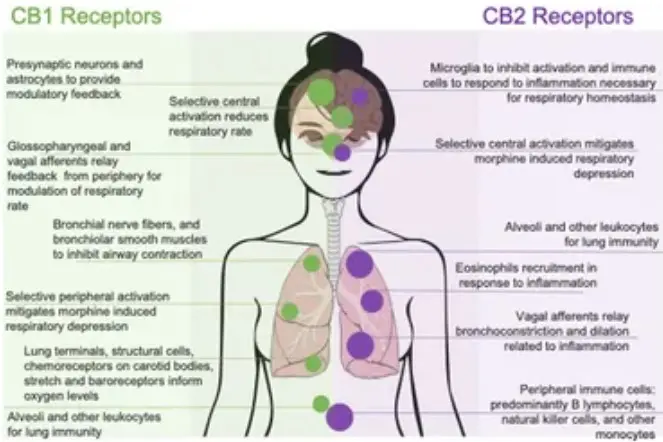The cannabis industry has evolved significantly in recent years, introducing various products that cater to different needs and preferences. One such innovation is the THCA pre-roll, a cannabis product that has gained attention for its unique properties. Unlike THC, which is known for its psychoactive effects, THCA (tetrahydrocannabinolic acid) offers a different set of potential benefits. Understanding how THCA pre-rolls work in your body can provide valuable insights into their effects and benefits.
What is THCA?
THCA is a non-psychoactive compound found in raw cannabis. It is the precursor to THC, meaning that when cannabis is heated through smoking, vaping, or cooking, THCA undergoes a process called decarboxylation and converts into THC. This transformation is what produces the well-known psychoactive effects associated with cannabis. However, in its raw form, THCA does not cause intoxication but may offer other therapeutic benefits.
How THCA Pre-Rolls Are Made
THCA pre-rolls are created using raw, unheated cannabis that has been carefully processed to preserve its THCA content. Manufacturers often freeze-dry the plant material or use other techniques to prevent decarboxylation. The result is a product rich in THCA but low in THC. These pre-rolls are typically designed for individuals seeking the benefits of cannabis without the high.
The Role of the Endocannabinoid System (ECS)
To understand how thca pre rolls work in your body, it’s essential to examine the endocannabinoid system (ECS). The ECS is a complex cell-signaling system that plays a crucial role in maintaining homeostasis. It consists of receptors (CB1 and CB2), endocannabinoids (naturally occurring compounds in the body), and enzymes that break down these compounds.
- CB1 Receptors: Primarily found in the brain and central nervous system, these receptors are responsible for the psychoactive effects of THC.
- CB2 Receptors: Found in the immune system and peripheral organs, these receptors are more involved in regulating inflammation and immune responses.
Unlike THC, THCA does not directly bind to CB1 receptors, which explains its lack of psychoactive effects. However, it may interact with other receptors and pathways in the ECS to produce its effects.
How THCA Interacts with the Body
While research on THCA is still in its early stages, preliminary studies and anecdotal evidence suggest that it may have several potential benefits:
- Anti-Inflammatory Properties THCA is believed to have strong anti-inflammatory effects. This makes it a potential option for individuals dealing with conditions such as arthritis, inflammatory bowel disease, or other inflammation-related issues.
- Neuroprotective Effects Some studies suggest that THCA may have neuroprotective properties, meaning it could help protect nerve cells from damage. This has implications for conditions like Alzheimer’s disease, Parkinson’s disease, and multiple sclerosis.
- Anti-Emetic Benefits THCA has shown promise as an anti-emetic, helping to reduce nausea and vomiting. This can be particularly beneficial for individuals undergoing chemotherapy or dealing with other conditions that cause nausea.
- Pain Relief Although THCA does not directly activate CB1 receptors, it may influence other pathways that modulate pain. This could make it a useful option for those seeking relief from chronic pain without the psychoactive effects of THC.
Methods of Consumption and Absorption
When consuming a THCA pre-roll, the method of use can affect how the compound interacts with your body:
- Smoking or Vaping: If a THCA pre-roll is smoked or vaped at high temperatures, some of the THCA will convert to THC due to decarboxylation. However, if consumed at lower temperatures, a significant portion of the THCA can remain intact, allowing you to experience its non-psychoactive benefits.
- Sublingual Absorption: Holding the smoke in your mouth for a brief period before inhaling may allow some THCA to be absorbed sublingually. This method can enhance the delivery of THCA to your bloodstream without significant decarboxylation.
Benefits of Using THCA Pre-Rolls
THCA pre-rolls offer several advantages, particularly for individuals who prefer natural remedies and are sensitive to the psychoactive effects of THC:
- Non-Psychoactive Relief: Since THCA does not cause a high, it’s ideal for those who want therapeutic benefits without altering their mental state.
- Convenient and Easy to Use: Pre-rolls are a simple and accessible way to consume THCA, especially for individuals who are new to cannabis.
- Potential for Targeted Benefits: With their anti-inflammatory, neuroprotective, and pain-relieving properties, THCA pre-rolls can be tailored to specific health concerns.
Potential Risks and Considerations
While THCA is generally considered safe, there are a few factors to keep in mind:
- Decarboxylation Risk: If not consumed properly, a THCA pre-roll may convert to THC, leading to psychoactive effects. This can be avoided by using lower temperatures or consuming raw cannabis products.
- Limited Research: Although promising, research on THCA is still limited, and more studies are needed to fully understand its effects and potential applications.
- Quality and Purity: As with any cannabis product, it’s essential to choose high-quality pre-rolls from reputable manufacturers to ensure safety and efficacy.
Conclusion
THCA pre-rolls represent a fascinating development in the cannabis industry, offering a non-psychoactive option for individuals seeking natural relief from various conditions. By understanding how THCA interacts with the body’s endocannabinoid system, consumers can make informed choices about incorporating these products into their wellness routines. As research continues to uncover the potential benefits of THCA, it’s likely that these pre-rolls will become an increasingly popular choice for those looking to harness the power of cannabis without the high.
Also Read-Exploring the Efficiency of a Complete Heat Pump System for Your Household
